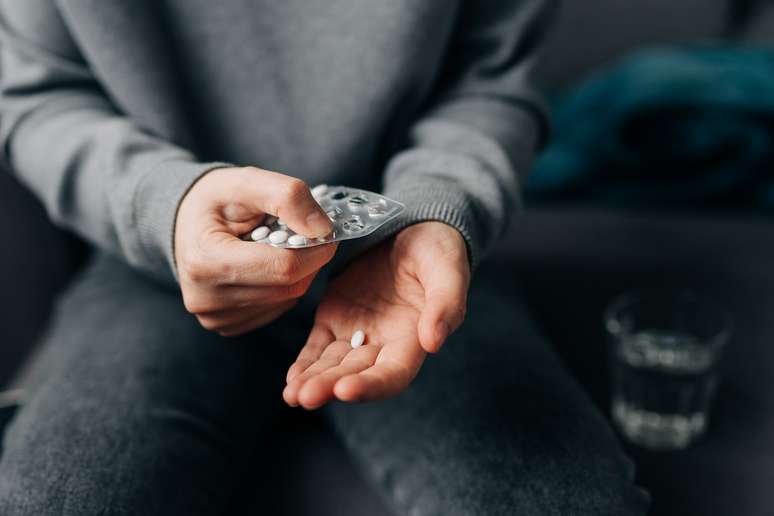Prednisone is indicated in allergic cases, such as rhinitis, having a powerful anti-inflammatory and anti-allergic effect.
Prednisone is a synthetic corticosteroid drug with anti-inflammatory, anti-allergic, and immunosuppressive properties. It is used to treat various diseases, such as:
- Autoimmune diseases: lupus, rheumatoid arthritis, Crohn’s disease, ulcerative colitis, psoriasis, among others;
- Inflammatory diseases: asthma, chronic bronchitis, allergic rhinitis, conjunctivitis, among others;
- Hematological diseases: leukemia, lymphoma, aplastic anemia, among others;
- Tumors: some types of leukemia, lymphoma, lung cancer, kidney cancer, breast cancer, among others;
- Other diseases: organ transplant, adrenal necrosis, serious skin diseases, among others.
Composition of prednisone
Prednisone is sold in tablets with varying dosages, generally from 5 mg to 20 mg. The active ingredient of the drug is prednisone, a synthetic corticosteroid that mimics the effects of cortisol, a hormone produced by the adrenal glands.
How to take prednisone
Prednisone should be taken orally, according to your doctor’s advice. The dose and frequency of administration vary depending on the disease to be treated and the patient’s response to the drug. In some cases, prednisone may be administered intravenously or intramuscularly.
It’s time they came into force
The time of action of prednisone varies depending on the dose administered and the route of administration. In general, the effects of the medicine begin to be felt within a few hours and last for several hours or days.
Contraindications of prednisone:
Prednisone is contraindicated for people with:
- Systemic fungal infections;
- Hypersensitivity to prednisone or other corticosteroids;
- Active peptic ulcer;
- Severe renal failure;
- Glaucoma;
- Uncontrolled diabetes mellitus.
Prednisone Side Effects:
The side effects of prednisone may vary depending on the dose administered, the duration of treatment and the individual sensitivity of the patient. Some of the most common side effects are:
- Increased appetite and weight gain;
- Acne;
- Insomnia;
- Nervousness;
- Mood changes;
- Heachache;
- Muscle weakness;
- Osteoporosis;
- Increased blood pressure;
- Increased risk of infections;
- Suppression of adrenal function.
How much does prednisone cost?
The price of prednisone varies depending on the dosage and brand of the drug. In Brazil, the price of a 5 mg tablet can range from R$0.50 to R$1.
Medical follow-up
The use of prednisone must be carried out under regular medical supervision. The doctor will evaluate the need for the drug, define the dose and frequency of administration, monitor side effects and adjust treatment as needed.
Source: Terra
Ben Stock is a lifestyle journalist and author at Gossipify. He writes about topics such as health, wellness, travel, food and home decor. He provides practical advice and inspiration to improve well-being, keeps readers up to date with latest lifestyle news and trends, known for his engaging writing style, in-depth analysis and unique perspectives.








